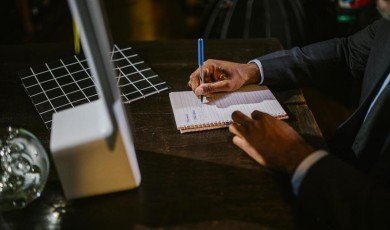
Global inequality remains a pressing challenge in the 21st century, affecting access to resources, opportunities, and quality of life for billions of people. From economic disparities to social marginalization, global inequality is deeply entrenched in societies worldwide. Tackling this complex issue requires coordinated international efforts, innovative strategies, and sustainable solutions. Several international organizations have taken the lead in addressing global inequality, advocating for social justice, economic equity, and inclusive development. This article highlights the top five international organizations making remarkable strides in fighting global inequality, summarizing their missions, approaches, and achievements.
1. The United Nations (UN)
Mission and Scope
The United Nations (UN) is the world’s foremost international organization dedicated to promoting peace, security, and sustainable development. Founded in 1945, it comprises 193 member states and a broad network of agencies and programs targeting global challenges—including inequality.
Key Initiatives Addressing Inequality
- 2030 Agenda for Sustainable Development: The UN adopted the Sustainable Development Goals (SDGs) in 2015. Goal 10 specifically aims to “reduce inequality within and among countries.” This includes targets related to income inequality, social protection, and equal opportunity.
- UNDP (United Nations Development Programme): The UNDP designs projects and reports—like the annual Human Development Report—that analyze inequality trends and suggest policy interventions.
- Peacebuilding and Human Rights Advocacy: UN agencies champion the rights of marginalized populations and promote gender equality, access to education, and healthcare.
Impact
The UN’s global reach and influence drive significant policy shifts. Its SDGs have become a blueprint for governments, NGOs, and private sectors to combat poverty and foster inclusion worldwide.
2. The World Bank Group
Mission and Scope
The World Bank Group is a leading international financial institution with a mission to end extreme poverty and boost shared prosperity. Established in 1944, it provides financial and technical support to developing countries.
Key Initiatives Addressing Inequality
- Inclusive Growth Strategies: The World Bank’s policies are centered around inclusive growth, improving access to basic services, and reducing disparities in health, education, and infrastructure.
- Data and Research: Its flagship reports—such as the World Development Report—analyze inequality drivers and assess the impact of interventions.
- Targeted Lending: The International Development Association (IDA), a part of the World Bank Group, provides concessional loans and grants to the world’s poorest countries to reduce inequality and improve living standards.
Impact
The World Bank’s investments have connected millions to basic services, lifted people out of poverty, and narrowed income gaps, particularly in lower-income regions.
3. Oxfam International
Mission and Scope
Oxfam International is a confederation of 21 independent charitable organizations, united by a vision of a just world without poverty. With operations in over 90 countries, Oxfam actively fights social and economic injustices.
Key Initiatives Addressing Inequality
- Research and Advocacy: Oxfam’s high-profile reports, like “Reward Work, Not Wealth,” expose extreme wealth concentration and call for fiscal reforms.
- Grassroots Campaigns: The “Even It Up” campaign pressures governments to address wealth inequality and promote fair taxation.
- Emergency Relief and Development Programs: Oxfam works on the ground to provide clean water, education, and income-generating opportunities, directly supporting vulnerable populations.
Impact
Oxfam’s mix of advocacy, research, and program implementation has shaped public debate on income and gender inequality, influencing global policy agendas.
4. The International Monetary Fund (IMF)
Mission and Scope
The International Monetary Fund (IMF), founded in 1944, supports international monetary cooperation and economic stability. Serving 190 member countries, the IMF plays a crucial role in addressing economic imbalances and fostering inclusive growth.
Key Initiatives Addressing Inequality
- Policy Advice and Technical Assistance: The IMF provides policy advice to help countries design tax systems, social spending frameworks, and labor regulations that reduce disparities.
- Research and Data: The IMF’s research investigates the impact of inequalities, offering recommendations for equality-oriented reforms.
- Financing for Low-Income Countries: Special lending programs, such as the Poverty Reduction and Growth Trust, support vulnerable nations with concessional financing.
Impact
While the IMF was historically viewed as focused on macroeconomic stability, it now prioritizes inclusive growth and social spending, helping shape policies that lower inequality worldwide.
5. Amnesty International
Mission and Scope
Amnesty International is a leading non-governmental organization based in London, renowned for its global advocacy for human rights. With more than 10 million supporters across 150 countries, Amnesty addresses not only civil and political rights but also the intersection of human rights and economic inequality.
Key Initiatives Addressing Inequality
- Research and Reporting: Amnesty documents human rights abuses exacerbated by inequality, such as discrimination, unequal access to healthcare, and education disparities.
- Advocacy Campaigns: The organization mounts campaigns to hold governments and corporations accountable for policies that perpetuate inequality and promote reforms to protect marginalized groups.
- Engagement with International Policymakers: Amnesty lobbies international bodies to integrate equality considerations into their policies and treaties.
Impact
Amnesty International’s work has increased global awareness of the links between inequality and human rights, contributing to legislative reforms and stronger accountability practices.
Conclusion
Fighting global inequality requires a multifaceted approach and resolute international cooperation. The United Nations, the World Bank Group, Oxfam International, the International Monetary Fund, and Amnesty International stand as pillars in the global battle against inequality. From driving policy change and conducting pivotal research to mobilizing local initiatives and providing humanitarian aid, these organizations play indispensable roles in advocating for justice, opportunity, and dignity for all. As inequality persists—shaped by factors like globalization, technology, and climate change—collaborative action remains more critical than ever.
By supporting, learning from, and engaging with these international organizations, individuals, communities, and governments alike can help create a more equitable world, leaving no one behind. Continued vigilance, innovation, and shared responsibility will remain key to overcoming the barriers of global inequality and building a future rooted in fairness and inclusion.








